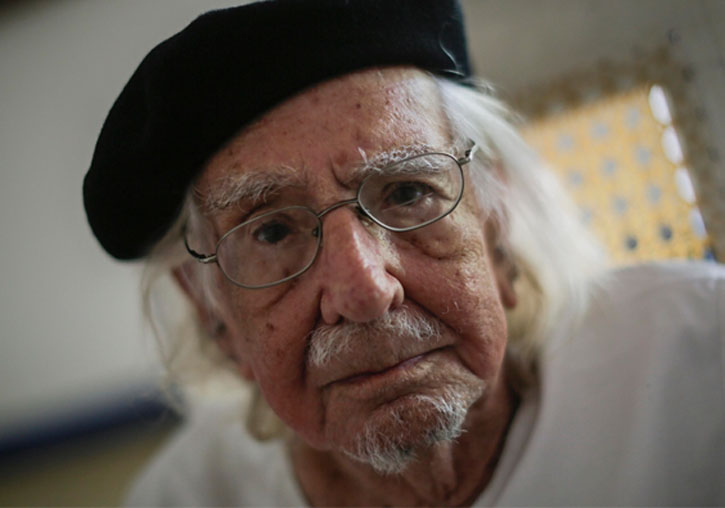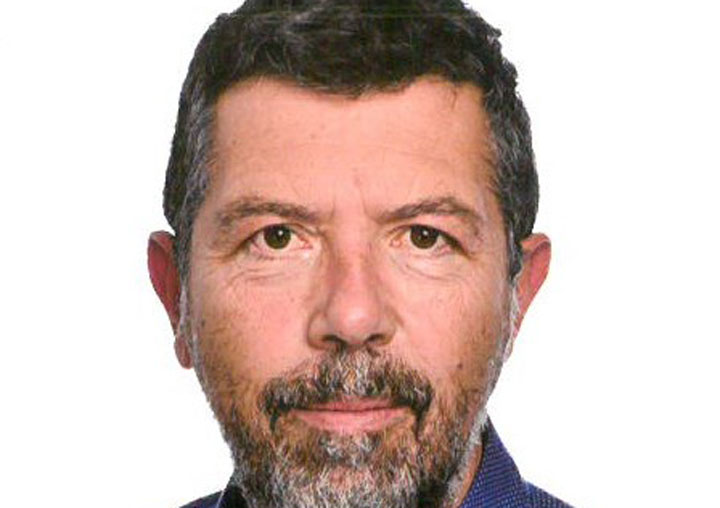Ernesto Cardenal, a Nicaraguan poet and honorary doctor of the Universitat de València, dies
- Press Office
- March 3rd, 2020

Ernesto Cardenal, a Nicaraguan poet and honorary doctor of the Universitat de València, dies at 95 in Managua. On 30 April 1987, he was awarded an honorary doctorate of the Faculty of Philology, Translation, and Communication by the Universitat de València.
The award ceremony was presented by the professors Sonia Mattalia and Josep Lluís Sirera. The principal, Ramon Lapiedra, expressed: “Doctor Ernesto Cardenal, thank you for everything that you have given us as a poet and as a fighter for a better world. Also thank you for having accepted our award and for staying here with us today. From now on, you are a part of our doctorate team; this way, we share the noble aspirations of the united, free, and progressive people with you.”
Ernesto Cardenal Martínez (born in Granada, Nicaragua on 20 January 1925) was a Nicaraguan poet, priest, theologian, writer, translator, sculptor, and politician mainly famous for his poetic work that received many international awards. He is recognised as one of the key proponents of liberation theology in Latin America.
He studied literature first in Managua and later, from 1943 to 1946, in Mexico. He followed the courses of the Faculty of Philosophy and Letters at the National Autonomous University of Mexico. From 1947 to 1949, he continued his studies in new York and travelled around Spain, Switzerland, and Italy between 1949 and 1950.
In July 1950, he returned to Nicaragua to participate in the April Revolution of 1954 against the regime of Anastasio Somoza García. The failure of the state resulted in deaths of many of his colleagues and close friends. In 1957, Ernesto Cardenal decided to join an Abbey of Gethsemani monastery in Kentucky, the US, where he met an American poet-priest Thomas Merton appointed as a Novice Master. In 1959, he left the monastery to study theology in Cuernavaca, Mexico.
Cardenal was ordained as a priest in Managua in 1965 and lated founded a Christian monastic community in one of the islands of the Solentiname Archipelago near the Cocibolca lake. During this time, he wrote his famous book El Evangelio de Solentiname (The Gospel of Solentiname) and established a colony of fishermen and peasant artists, which made him famous worldwide. Cardenal spend his time on the islands reading complete works of Rubén Darío, writing, and giving the holy mass service during the Holy Week in a small local church.
In 1971, he took a trip to Chile where he met the president Salvador Allende. This visit to the South American state took place on the day when Pablo Neruda, a Chilean poet who greatly influenced the work of Cardenal and from whom he could not “escape”, received a Nobel Prize for Literature.
A proponent of a “revolution without vengeance”, Cardenal collaborated with the Sardinista National Liberation Front (FSLN) who overthrew Somoza’s regime and named Cardenal a minister of culture on the day of the victory of the Nicaraguan Revolution in July 1979. He worked as a minister until 1987, when the ministry was closed due to economic reasons.
In 1994, Cardenal left the FSLN as a protest against the direction of Daniel Ortega and later supported Sardinista Renovation Movement (MRS) during the 2006 elections in addition to other important Nicaraguan poets like Gioconda Belli and the MRS founder Sergio Ramírez.
File in: Doctors Honoris Causa
















